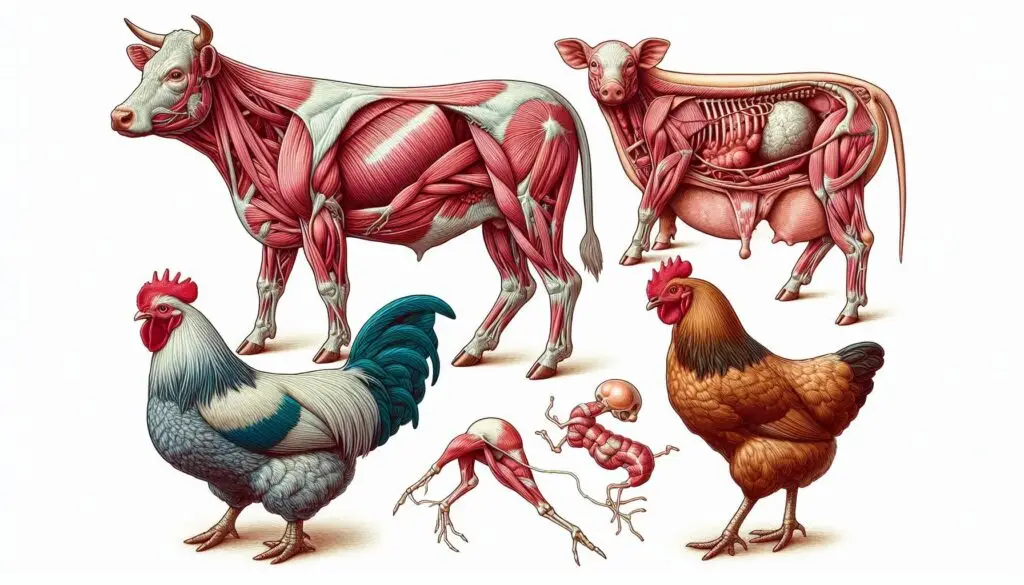Climatology & Its Impact on Animals

Introduction
Climatology, the scientific study of climate, encompasses various parameters that significantly influence both the environment and living organisms. Understanding these parameters is crucial for comprehending animal ecology and the physiological responses of animals to climate-related stressors. This article will explore the essential aspects of climatology, its various parameters, their importance, and the effects of stress on animal health and production.
What is Climatology?
Climatology is defined as the study of long-term weather patterns and averages over extended periods, typically 30 years or more. It differs from meteorology, which focuses on short-term weather phenomena. Climatologists analyze historical data to identify trends and variations in climate, which can be influenced by natural events and human activities. May refer: IFAW
Key Parameters of Climatology
Several key parameters are vital in climatology, each contributing to our understanding of climate and its effects on ecosystems:
- Temperature: Average temperatures influence the distribution of species and the timing of biological events such as flowering and migration.
- Precipitation: The amount and distribution of rainfall affect water availability for ecosystems and agricultural practices.
- Humidity: Relative humidity levels impact plant transpiration and animal hydration.
- Solar Radiation: The amount of solar energy received by the Earth drives photosynthesis and influences temperature patterns.
- Wind Patterns: Winds affect weather systems and can influence the dispersal of seeds and animals.
- Atmospheric Pressure: Changes in atmospheric pressure can indicate weather changes and influence climatic conditions.
Importance of Climatology
Climatology plays a critical role in various fields, including agriculture, ecology, and environmental science. Its importance can be summarized as follows:
- Agricultural Planning: Understanding climate patterns helps farmers make informed decisions about crop selection and management practices.
- Biodiversity Conservation: Climatology aids in predicting how climate change will affect species distribution and ecosystem health, guiding conservation efforts.
- Disaster Preparedness: Knowledge of climatic extremes can enhance preparedness for natural disasters such as floods, droughts, and hurricanes.
- Climate Change Mitigation: Climatologists study the impacts of human activities on climate, providing insights for developing strategies to mitigate climate change effects.
Animal Ecology and Climatology
Animal ecology examines how animals interact with their environment, including the influence of climatic factors on their behavior and distribution. Key aspects include:
- Species Distribution: Climate determines the habitats suitable for different species, affecting their geographic range.
- Migration Patterns: Many animals migrate in response to seasonal climate changes, seeking optimal conditions for feeding and breeding.
- Reproductive Timing: Climate influences the timing of reproductive events, which can affect population dynamics.
Physiology of Behavior
The physiology of behavior refers to how physiological processes influence animal behavior, particularly in response to environmental stressors. Climate-related factors can induce stress in animals, leading to various physiological responses:
- Thermoregulation: Animals must maintain their body temperature within a viable range. Extreme temperatures can lead to heat stress or hypothermia.
- Metabolic Changes: Stress can alter metabolic rates, affecting energy availability for growth, reproduction, and immune function.
- Behavioral Adaptations: Animals may change their behavior in response to climatic stressors, such as seeking shade during heatwaves or altering feeding habits.
Effects of Stress on Health and Production
Stress, particularly from climatic factors, can have profound effects on animal health and production. Some of the key impacts include:
- Reduced Immunity: Chronic stress can weaken the immune system, making animals more susceptible to diseases.
- Lower Reproductive Success: Stress can lead to decreased fertility rates and higher rates of abortion in livestock.
- Growth Impairments: Animals under stress may experience stunted growth and reduced weight gain.
- Decreased Milk Production: In dairy animals, heat stress can significantly reduce milk yield and quality.
- Behavioral Issues: Stress can lead to abnormal behaviors, such as aggression or withdrawal, affecting animal welfare.
Conclusion
Understanding Climatology & Its Impact on Animals is essential for comprehending the intricate relationships between climate, animal ecology, and physiology. As climate change continues to pose challenges to ecosystems and agriculture, the insights gained from climatological studies will be crucial for developing adaptive strategies to mitigate its effects on animal health and production.
For more pearls of Vets Wisdom:






Responses